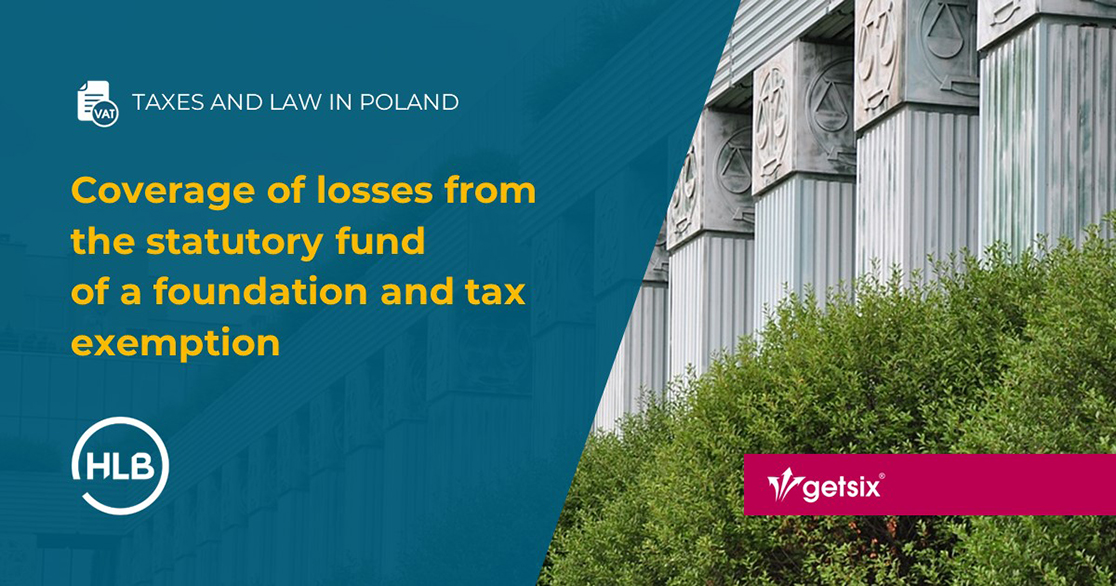Coverage of losses from the statutory fund of a foundation and tax exemption
19 July 2024
19 July 2024

Recently, the Supreme Administrative Court of Poland (Polish: Naczelny Sąd Administracyjny, NSA) issued an important ruling regarding the issue of overpayment of corporate income tax by foundations with the status of a public benefit organization. This judgment, issued at the hearing on April 10, 2024, dismissed the cassation appeal filed by the foundation against the decision of the Director of the Tax Administration Chamber in Katowice. The case concerned the refusal to confirm an overpayment of corporate income tax for the years 2011-2016.
The foundation conducted business activities that generated losses in the years 2011 to 2016. These losses were covered by the foundation’s statutory fund. The foundation applied for the declaration of an overpayment of corporate income tax for these years, arguing that income from business activities allocated to the statutory fund is not subject to taxation, even if it is then allocated back to running the business (covering a loss).
The Provincial Administrative Court in Gliwice dismissed the foundation’s complaint against the decision of the Director of the Tax Administration Chamber in Katowice of March 2, 2020, which concerned the refusal to declare an overpayment of corporate income tax. The foundation appealed against this judgment, claiming that the tax authority had incorrectly interpreted the provisions regarding the coverage of business losses from the statutory fund.
The foundation based its position on Article 12(4)(4) of the Corporate Income Tax Act, which states that revenue received to create or increase the statutory fund is not included in taxable income. The foundation argued that since funds the statutory fund do not constitute income, their use to cover business losses should also not be subject to taxation.
The Supreme Administrative Court (NSA) shared the position of the first instance court and dismissed the foundation’s cassation appeal. The NSA pointed out that, in accordance with the Corporate Income Tax Act, tax exemption covers the income of public benefit organizations referred to in the provisions on public benefit activities and volunteer work, insofar as it is allocated to statutory activities, excluding business activities.
In this case, the funds were not allocated directly for the statutory purposes of the foundation, but for business activities (covering losses), which means that the condition for tax exemption was not met. For income to be exempt from taxation, it must not only be allocated but also spent directly for statutory purpose.
Consequently, according to the court, these funds were subject to taxation.
The NSA judgment in this case is important for all public benefit organizations that conduct business activities. These organizations must remember that statutory fund resources can only be used for statutory purposes. Using these funds to cover business losses may result in taxation.
In addition, the NSA emphasized the importance of a strict interpretation of tax regulations in its justification. This means that public benefit organizations cannot rely on an extended interpretation of the provisions to avoid taxation. If in doubt about the interpretation of the regulations, these organizations should always seek legal advice.
If you have any further questions or require additional information, please contact your business relationship person or use the enquiry form on the HLB Poland website.
***
Download the brochures providing general information and outlining the services that are offered by HLB member firms.
Learn moreClick below for more detailed information regarding population, major towns and cities, language, religion and holidays in Poland.
Learn more